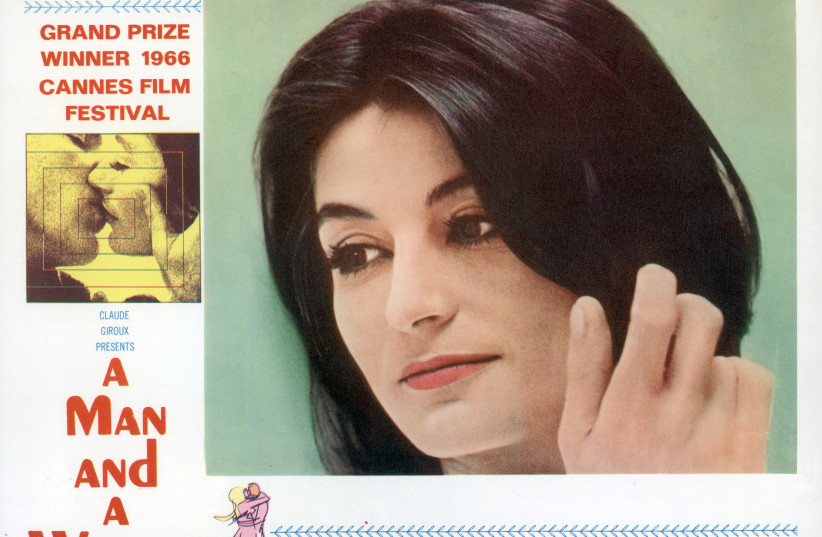Anouk Aimée, the French-Jewish movie star who will forever be remembered as the woman in the great romantic drama, A Man and Woman by Claude Lelouch, has died at 92, according to an Instagram post by her daughter, Manuela Papatakis.
Papatakis wrote: “With my daughter, Galaad, and my granddaughter, Mila, we are immensely saddened to announce the decease of my mother, Anouk Aimée.
I was at her bedside when she passed away this morning at her home in Paris; With infinite love.”
Aimée had a glamour and elegance that caught on just as post-war audiences around the world were falling in love with French films, making her into an international sensation in the 1960s. During that decade, Life Magazine wrote of her, “After each picture her enigmatic beauty lingered. . . [Aimée] is the Left Bank’s most beautiful resident.”
Aimée was born Nicole Françoise Florence Dreyfus in Paris in 1932. Her father was Jewish, although it was not known if he was related to the famous Captain Alfred Dreyfus. Her mother was Catholic and she was raised in that religion, although she reportedly converted to Judaism as an adult to honor her father.

While she made most of her movies in France, she was multilingual and appeared in films from around the world, notably Federico Fellini’s La Dolce Vita (1960) and 81⁄2 (1963). She also starred in the title role in George Cukor’s Justine (1969), an adaptation of the novel by Lawrence Durrell about a mysterious Egyptian Jewish woman.
Aimée's most-known work
But she will always be associated most firmly with A Man and a Woman, a love story about a widow (Aimée) and a widower who is a race-car driver, played by Jean-Louis Trintignant, who meet because their children attend the same boarding school. At a time when many European filmmakers were telling stories of ennui and alienation, this was an old-fashioned romance, albeit with great style, gorgeous fashion, fancy cars, and artistically photographed sex. It was the first of a trilogy about the characters, although the sequel, A Man and A Woman: 20 Years Later, released in 1986, was not nearly as big a hit. Lelouch followed up these two films in 2019 with The Best Years of a Life, in which the elderly characters still feel a certain spark in each other’s presence. This was the last film made by both Aimée and Trintignant, who died in 2022.
Aimée married four times and had one daughter. Her third husband, Pierre Barouh, was a French writer-composer-singer from a Turkish Jewish family who was best known for his work on the score of A Man and A Woman. Her final marriage, to actor Albert Finney, ended in divorce in 1978.
According to the Shalvi/Hyman Encyclopedia of Jewish Women in the Jewish Women’s Archive, she rarely spoke about her Jewish heritage, but considered it important to play a Holocaust survivor who visits Auschwitz in the 2003 movie, The Birch-Tree Meadow by Marceline Loridan Ivens.
According to the encyclopedia, “At the New York City screening of the film in the spring of 2003, Aimée was still reticent about her own life during the war (she referred to a relative who had been deported and killed but stopped short of saying what she herself experienced), yet she spoke with eloquence and animation about the importance of documenting this chapter of Jewish history.”
